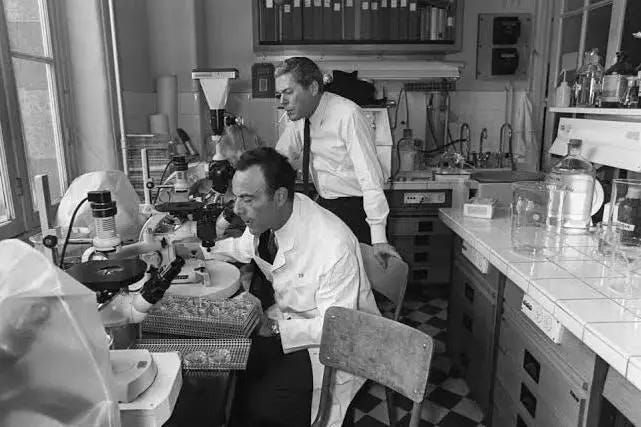Jacques Monod - From “Pipettes to Pistols”
Jacques Monod: Why One of the Great Biologists Is Still One of My Heroes
In a world increasingly obsessed with the negative personality trait, certainty, Jacques Monod dared to champion chance.
Biologist, philosopher, resistance fighter, and Nobel laureate; Monod’s work sits at the intersection of science and meaning. His masterpiece, “Chance and Necessity” to me when I was an undergraduate biologist decades ago by a university professor, doesn’t just describe the molecular machinery of life. It confronts one of the most profound paradoxes of our existence: that life, in all its complexity and beauty, emerges from randomness governed by strict laws.
Monod argued that evolution has no purpose, no direction, and yet from this purposeless process emerged minds capable of language, creativity, and ethics. In doing so, he laid the groundwork for a deeper understanding of what it means to be human. His insights ripple into adjacent fields as diverse as genetics, consciousness studies, and artificial intelligence.
But Monod’s greatness wasn’t confined to the lab or the lecture hall.
When France fell under Nazi occupation, he made an extraordinary pivot, from pipettes to pistols. As a member of the French Resistance, Monod risked everything to oppose tyranny. He helped coordinate sabotage missions, smuggled messages, and supported the underground press. This wasn’t just rebellion; it was moral clarity in action. It was science and conscience, hand in hand.
It was during this time that Monod met Albert Camus. Their friendship, born in the shadows of war, would come to symbolise the alliance between existential thought and scientific realism. One challenged the absurd with literature and philosophy; the other, with biology and reason. Together, they reflected the kind of intellectual bravery that rarely survives the modern attention economy.
Later, when asked how he could reconcile his belief in a purposeless universe with such acts of courage and conviction, Monod simply replied:
Man must at last awaken to his total solitude, his fundamental isolation. Now does he at last realise that he is in a universe deaf to his music, indifferent to his hopes, as to his sufferings or his crimes.
And still, he chose to act.
That is why Jacques Monod is a hero to me. Not just for his scientific brilliance, but for his existential honesty and extraordinary bravery. Not just for what he discovered, but for what he chose to do with that knowledge.
He reminds us that clarity is not always comfortable, and that meaning must be constructed, not inherited. In my keynotes, Monod’s story is frequently referenced as an example of a heroic human being and an unflinching advocate for the scientific method.
In our era of synthetic biology, artificial intelligence, and radical individualisation, Monod’s thinking remains vital. His call to responsibility, and to lucidity, is more urgent than ever.
He is, in many ways, a model of the “Perennial Mindset” an individual who defied categories and generations, who fused insight with courage, and who understood that what endures is not the illusion of certainty, but the pursuit of truth.




